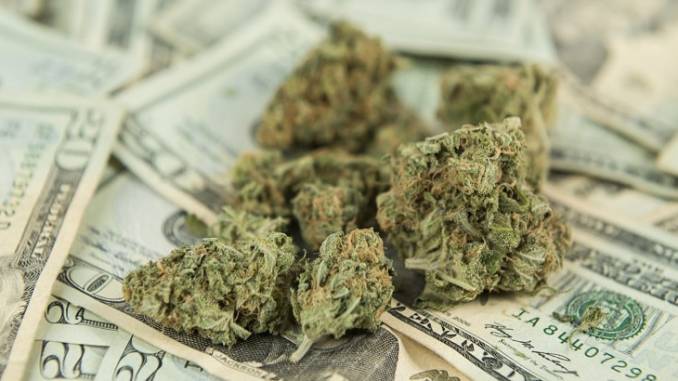Legal marijuana made big promises on racial equity — and fell short
 NBC News 3 December 2018
NBC News 3 December 2018
Family First Comment: In Colorado, the Drug Policy Alliance found, the number of black juveniles arrested on marijuana charges grew after legalization. In 2016, a Colorado Department of Public Safety analysis found that black people living in that state remained three times more likely than white people to be arrested for selling or possessing marijuana. In Washington state, an ACLU analysis found that in 2014, the first year in which marijuana became available in legal retail stores, a black adult remained three times more likely to face low-level marijuana charges than a white adult.
In Colorado, the Drug Policy Alliance found, the number of black juveniles arrested on marijuana charges grew after legalization. In 2016, a Colorado Department of Public Safety analysis found that black people living in that state remained three times more likely than white people to be arrested for selling or possessing marijuana. In Washington state, an ACLU analysis found that in 2014, the first year in which marijuana became available in legal retail stores, a black adult remained three times more likely to face low-level marijuana charges than a white adult.
The truth behind those figures is complex, as state legal systems have not fully caught up to the new reality of legalized recreational pot. “Law enforcement officials and prosecuting attorneys continue to struggle with enforcement of the complex and sometimes conflicting marijuana laws that remain,” according to the 2016 Colorado Department of Public safety report. Some of the arrests involve people buying or selling small quantities on the black market, often to avoid new taxes. Public consumption is illegal in many states where recreational, small-scale possession is not. And, many criminal justice reform advocates say that fundamental problems in policing and prosecuting — including arrest goals and individual and institutional bigotry — remain.
States have also faced the question of what should happen to people who have criminal records for low-level marijuana offenses that are no longer crimes post-legalization. In Colorado, Washington and Nevada — a trio of early legalization adopters — state officials refused to take up bills or vetoed measures that would have sealed or expunged criminal records of people convicted of low-level marijuana crimes before legalization.
In 2017, criminal justice and drug policy reform advocates convinced Colorado lawmakers to pass a bill allowing people convicted of misdemeanor possession or marijuana use to have those records sealed if the case would no longer constitute a crime. The records are not expunged. Oregon did something similar in 2015.
In Missouri, which legalized medical marijuana, lawmakers have trimmed the waiting periods for those who want to have their misdemeanor criminal records erased from 10 to three years. In Maryland, Massachusetts and Vermont, where minor marijuana convictions can be expunged, people still must initiate and then navigate the process and pay the costs. A drug conviction can make it difficult to impossible to obtain work, student loans and even government-subsidized housing.
READ MORE: https://www.nbcnews.com/news/nbcblk/legal-marijuana-made-big-promises-racial-equity-fell-short-n952376







